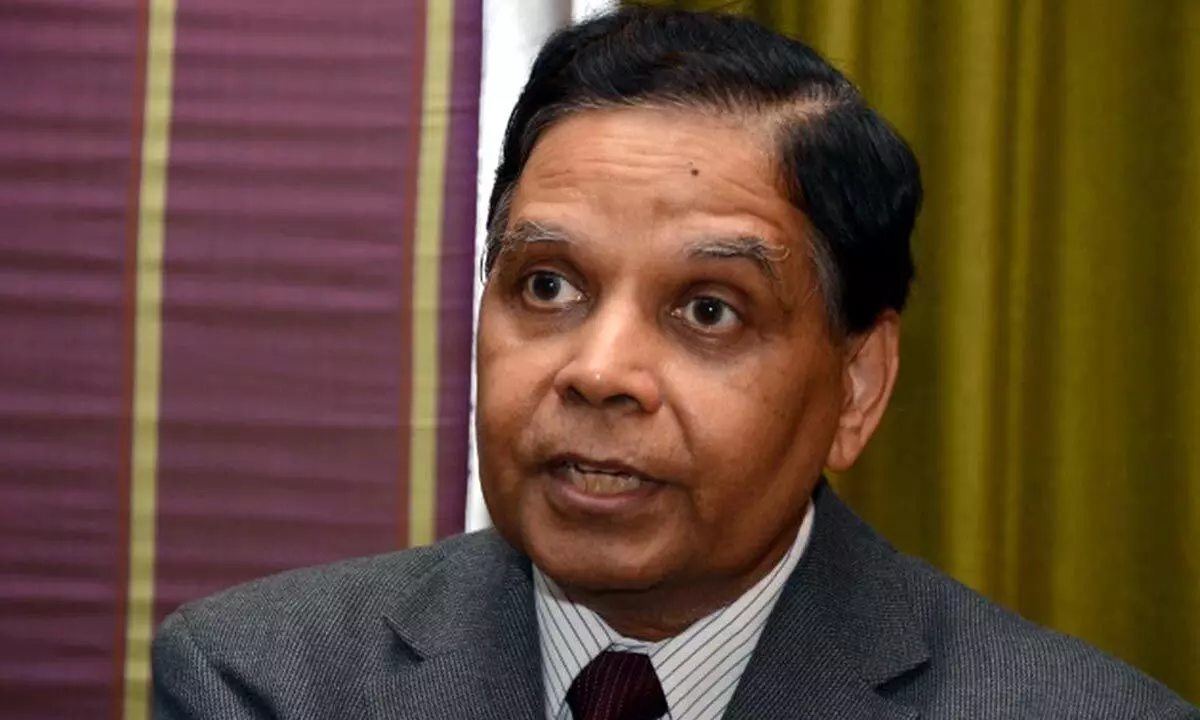India will be world's 3rd largest economy by FY28: Panagariya
Former V-C of NITI Aayog says India is on cusp of returning to high growth trajectory and currently in a spot that it was in 2003 when the growth rate picked up to close to 8% and the country sustained that kind of rate
image for illustrative purpose

The Budget 2023-24 has proposed changes in the optional tax regime, which was introduced in 2020-21. As per the changes proposed in the Budget, no tax would be levied on people with an annual income of up to Rs7 lakh under the new tax regime, but it made no changes for those who continue in the old regime that provides for tax exemptions and deductions on investments and expenses
New York: Eminent economist Arvind Panagariya said India is on the cusp of returning to a high growth trajectory and voiced confidence that the country will become the world's third-largest economy by 2027-28. Currently, India is the fifth largest economy "so it's another five years. We are already in (the year) 2023. So 2027-28, India should be the third-largest economy," Panagariya, Columbia University Professor and former Vice Chairman of NITI Aayog, told in an interview here.
A day before Finance Minister Nirmala Sitharaman presented the Union Budget on Wednesday, the Economic Survey tabled in Parliament pegged India's GDP growth at 6.5 per cent in 2023-24. The International Monetary Fund's World Economic Outlook update Tuesday said growth in India is set to "decline from 6.8 per cent in 2022 to 6.1 per cent in 2023 before picking up to 6.8 per cent in 2024, with resilient domestic demand despite external headwinds." Last week, the UN said in its flagship World Economic Situation and Prospects 2023 report that India is projected to grow at 6.7 per cent in 2024, the fastest-growing major economy in the world. Panagariya said his reading of the Economic Survey is that the "narrative that comes across tells the story of a much stronger economy" than the one that is growing at 6.5 per cent.
"My sense is that given where India stands currently, it should get back to 7 per cent plus kind of growth rate," he said. He added India is currently in a spot that it was in 2003 when the growth rate picked up to close to about 8 per cent and the country sustained that kind of rate for a few years. Outlining his reasons for high growth ahead, he said several reforms have been implemented and weaknesses in the economy have been cleaned up during the COVID pandemic such as non-performing assets of banks and weak balance sheets of many of the big corporates. Noting that balance sheets of banks and corporates are now pretty sound, he said "this is reflected in the investment proposals and investment commitments that are being made by many of the large corporates." "We're seeing this surge in both public and private investments, the fact that policy reforms have happened, lots of infrastructure has been built up.
And the fact that there is an effective government in place, very credible (government)," Panagariya said. "A government which realises its strengths and which is I think the reason you don't see a whole lot of populism in the budget, even though this is the last full budget before parliamentary elections, tells you and makes me feel that India is on the cusp of returning to a high growth trajectory," he said. India heads into general elections in 2024. Panagariya added that India will "certainly remain" the fastest-growing major economy for several years to come. He projected that India would maintain about a 7 per cent growth rate over these years and if the country takes measures to open up the economy further, particularly on the trade front with liberalisation requiring "a good bit of knocking down of the customs duties", then "we could get to easily 8 per cent." He said the "rest of the strengths" for achieving this growth are present in the system. Some of the reforms that are ongoing need to be implemented, for instance, the labour law

